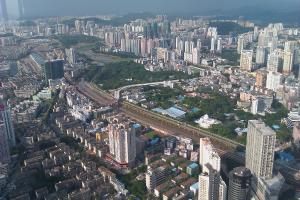Forum
Details
In recent years, China has started to take its unique responsibility in the global fight against climate change very seriously. The government has initiated a wide range of measures designed to save resources and reduce emissions. Sustainable urban development is a key component of China’s climate policy. The country is currently implementing various projects, ranging from innovative public transport concepts to the generation of renewable energies in urban areas and the establishment of eco cities on the outskirts of mega cities.
These projects offer valuable lessons for urban development in other Asian countries, but also other continents. The two-week study trip to China will allow future decision makers from all over the world to learn about current developments and challenges. Participants will visit four cities in China and examine their development from different perspectives. Different working groups will take a closer looks at four over-arching topics: energy, environmental protection, infrastructure, and urbanization. Field trips and discussions with politicians, consultants, and the public will offer insights into the history, implementation and recent development of the projects. In addition, participants will summarize the trip’s findings and present their own recommendations for future urban development at an international urban development conference in Guangzhou.
The four cities on the agenda each come from very different backgrounds and deal with a variety of challenges. As a Special Administrative Region, Hong Kong makes use of its possibility to pursue its own agenda. With its 2030+ goals, the city has designed an integrative concept for sustainable development until 2030. Shenzhen, the economically-thriving neighbor city of Hong Kong, uses its rapid growth to develop and build low-emission urban areas. Due to its excellent economic relations with other parts of the world, Shenzhen presents itself as an international blueprint of urban development in China. Wuhan, located by the Jangtse river in Central China, will most likely be affected by the rising water levels of China’s largest river – a direct result of climate change. Thus, Wuhan University has emerged as a pioneer in the field of Chinese climate change research. Guangzhou can look back on a 300-year old history as a hub for international trade. The city is located at the heart of Guangdong province, often nicknamed the “workshop of the world”. However, considering its growing population of currently 11 million citizens, the city needs to find ways to reduce its vast amounts of pollution.



